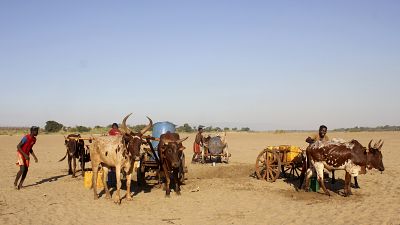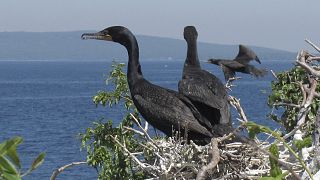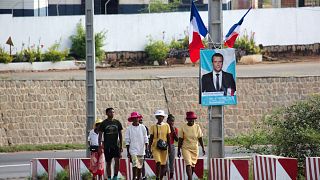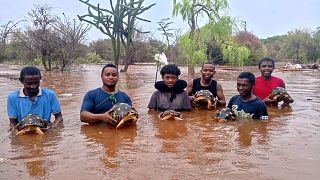Madagascar
Head North for Work and Food
The World Bank and the United States donated $200 million to Madagascar to fight hunger in the south — from where thousands of Malagasy locals are also fleeing drought.
This comes as climate change consequences compounded by the lockdown in light of the COVID-19 pandemic, see a higher number of migrants than in previous years.
Soazoloke Tsimarivo, a migrant from the south, shares the recent choice he made to seek better opportunities, "I only had two zebus, I got them sold for around 146 dollars and used the money to finance my trip with my children."
The family heads North in the hopes of finding work in the vanilla production industry as thousands of men from the south leave to work elsewhere for a few months before returning home — sometimes with women and children by their side.
As is the case of Mara who left everything to grow cassava in the north-west, "I sold my house and my land for about 53 dollars when I had bought it for 266 dollars. I was so sad, I even had tears in my eyes.
A Tougher than Usual Year in Madagascar
Famine hit the Androy and Anosy regions harder than usual in 2020.
In a local health centre in southern Madagascar, the number of malnourished children doubled in one year.
At the age of 4, Pascaline Kazonomentsoa's daughter weighs less than 13 kilos, which is the weight of a 2 and a half-year-old child. She shares how she copes with the food insecurity situation, "We have nothing to eat, we eat tamarind. I mix the tamarind with food supplement and add clay. That's what I give my daughter because otherwise, she stays hungry."
To fight against hunger, the state plans to build pipelines in 4 major rivers. The project, scheduled to begin this year, costs $280 million. But so far, only $20 million has been released.
Simon Robison Randriatsiferana, the Secretary-General of the Ministry of Water, outlined the project in view.
"We are going to exploit the EFAHO river by creating water arrivals to the Ambovombe plain. Thanks to this, there will be a plain of 120,000 hectares which will be arable. If this project becomes a reality, this plain will be able to meet the water and food needs of the entire southern part of the country. Up to 250,000 people will be able to benefit from this project".
Context
Volana Razafimanantsoa, a correspondent for Africanews in Madagascar summarises the current state of affairs:
Another government project foresees to grant thousands of hectares of arable land to 1500 migrant families.
The project takes place in Tsiroanomandidy, a 5-hour drive from Antananarivo, the Malagasy capital. But so far, only 19 families have agreed to relocate













Go to video
Major nations agree on first global tax on shipping’s greenhouse gas emissions
01:41
Ocean carbon solutions face growth and environmental challenges
03:46
With 500 species, Moroccan exotic garden an oasis of biodiversity
03:52
Amid drought, King urges Moroccans not to kill sheep for Eid al-Adha
04:10
UN warns of worsening famine in Sudan as fighting escalates
05:45
Study finds world's mountain glaciers melting faster than ever before